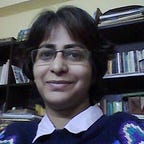Bengali — the endonym of Bangla
When did Bengali emerge as a language? History books speak of heroes emerging in particular period during the course of human civilization. We cannot expect the birth of a language associated to a particular date same way. When some of the historians come with an idea that Bengali language was born one thousand years back, we may recall the reference of Buddhists text Lalitavistar which claims that Buddhadev learned scripts of Anga, Banga, Brahmi, Saurastri and Māgadhi. This tells us of the presence of distinct script for language spoken in Bengal even before the birth of Christ. The geographical boundary of Bengal before Christ is obviously not very clear to us!
True that oldest example of Bengali script is found about one thousand years back — there are manuscripts and inscriptions to support that. But a language does not necessarily develop along with a script. History of languages tells that the grammar and script associated to a language usually develop long after the verbal usage of a language starts. And verbal language practice does not leave ‘evidence’ for historians. During colonialist period, a section of European academicians took effort to prove the origin of Bengali language and its script to be somewhere in Europe or Asian territories adjacent to Europe. Problem with those kinds of evidence based historical analysis is, those are based on very limited evidences — those kinds of evidences do not last for centuries. Ashokan inscriptions tell there were around 84000 of them scattered in different parts of the country. We found only around hundred of them! If Samudragupta, the illustrious Gupta King mentioned one of his Bengali subsidiaries in his Allahabad inscription, then there was some language and script in eastern part of the land as early as in fourth century AD. Deciphering inscriptions and manuscripts found in eastern part of India — current West Bengal, Bangladesh, Assam, Bihar, and Odisha, makes us sure of the existence of the predecessor of current Bengali script in 7th\8th century.
A difference between written and spoken language is normal. But when the difference becomes too wide, the written language dies and the spoken modifies to some extent to turn into written language.
Probably same happened in case of Bengali. If Prākrit has replaced Sanskrit in writing, then Prākrit also had to be replaced by its successor someday. Scriptural evidences tell us that Bengali was not a cousin, but successor of Prākrit, which was started developing as the Buddhist cultural empire started collapsing. Bengali in post-Charyāpada era shows clear changes those make us anticipate that there was some effort to develop Bengali as a sankritised language removing its former Prākrtised form. Even some of the verses written by Bharatchandra Ray in first half of 18th century could be easily designated as Sanskrit verses due to the selection of words in them. During Islamic rule that started around 13th century AD, Farsi was imposed as official language. Naturally, many of court literature composed in this period shows strong influence of Farsi. In sharp contrast to that, 19th century (during British rule) literature shows an inclination to use Bengali colloquy in literary works, which is no way Prākrit. Anyway most of the Hindu authors in between 18th-20th century mostly used sankritised Bengali as literary language. The Bengali educationist Ishwarchandra Vidyasagar (1820–1891) was the first person who gave Bengali a distinct form as literary language free from the excessive influence of Sanskrit, Farsi and colloquy.
Notable is, considerable section of Bengali literature of 17th 18th century also shows lot of influence of Farsi in language. Several hundred years of Islamic rule may have this kind of impact on literary use of language, but how come Bharatchandra Roy’s language is completely free of Farsi influence? Is it possible that different authors of same era opted for different linguistic styles depending on own subject?
Better not to indulge too much in linguistic history — Better to concentrate in literary history and references as we all are looking forward to an interesting discussion on Bengali …
“None knows when the era of Kalidasa was over — only the pundits continue arguing regarding the date and time.” — Rabindranath Tagore
